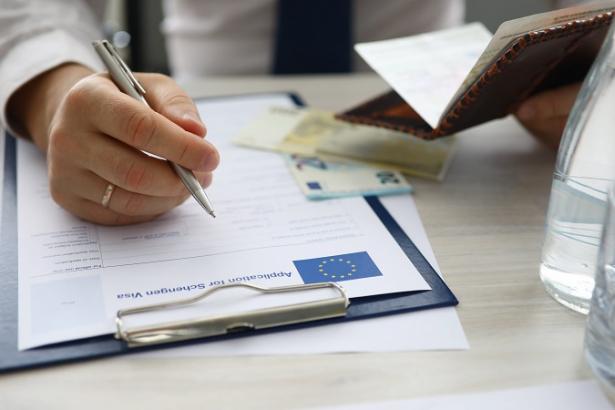Will the vaccine be mandatory for travelling to the Schengen Area?
Learn about the rules and regulations in force for travelling to the Schengen Area in 2021.

Will the vaccine be mandatory for travelling to the Schengen Area?
June 10th 2021
Will you need a vaccine to travel to the Schengen Area? At the moment, the short answer is no. No vaccines are required for travelling to the Schengen Area, and the Covid-19 vaccine is not an exception to this rule.
Although the Covid-19 vaccine is not required, it does simplify travelling. If you are vaccinated, you may:
- Travel within the Schengen Area (EU Green Certificate);
- More easily enter the Schengen Area, particularly France.
Traveling within the Schengen Area with the EU Green Certificate
The EU Green Certificate currently only applies to European citizens. In order to travel to the Schengen Area from a non-member country, you must verify the health restrictions imposed by the EU Member States.
Reserved for citizens of the Schengen Area and European Union, the EU Green Certificate is a QR code that provides proof of non-infection by the virus. There are 3 ways to obtain an EU Green Certificate and travel within the Schengen Area:
1. Traveling in the Schengen Area with the Covid-19 vaccine
The EU Green Certificate may be obtained with proof of one of the following vaccines: Pfizer, Moderna, AstraZeneca or Johnson & Johnson. It does not become active until:
- 2 weeks after the second shot for Pfizer, Moderna et AstraZeneca
- 4 weeks after the shot for Johnson & Johnson
- 2 weeks after the single shot for people who have had Covid-19.
2. Traveling in the Schengen Area with a negative RT-PCR or antigen test
You may also travel in the Schengen Area, and obtain a valid Green Certificate, with a negative RT-PCR or antigen test that is less than 72 hours old.
3. Traveling in the Schengen Area with proof of recent recovery from Covid-19
Finally, you may travel in the Schengen Area with the EU Green Certificate with proof of recent recovery from Covid-19. A positive RT-PCR test that is between 2 weeks and 6 months old is accepted as proof.
Does this QR code seem familiar? As well it should, France has already been using it as the “health pass”. Since June 9, the pass has been required to access certain places or events. As of July 1, it will be standardised across Europe to facilitate travel within the EU.
Traveling to the Schengen Area from a non-member country
The EU Green Certificate currently only applies to European citizens. In order to travel to the Schengen Area from a non-member country, you must verify the health restrictions imposed by the EU Member States.
The European Union began classifying countries based on different health indicators on June 2, 2021:
- Green countries: no concerning circulation of the virus. These currently include all European Member States, as well as Australia, South Korea, Israel, Japan, Lebanon, New Zealand and Singapore,
- Orange countries: where the virus is circulating, but under control. These currently include all countries that are neither green nor red,
- Red countries: where the virus is actively circulating and/or a worrying strain is present in the country. These currently include South Africa, Argentina, Bahrain, Bangladesh, Bolivia, Brazil, Chile, Colombia, Costa Rica, India, Nepal, Pakistan, Sri Lanka, Suriname, Turkey and Uruguay.
Depending on the colour (green, orange or red) of the country of origin and the country of destination, different rules apply: compelling reasons for travel, test required at boarding, test required at arrival, quarantine or isolation measures.
Example #1: if I travel from Japan (green) to Italy (green), I don’t need to justify my reason for travel or quarantine upon arrival. I do need to provide proof of a negative PCR or antigen test from within 72 hours.
Example #2: if I travel from Argentina (red) to France (green), I need to justify a compelling reason for travel, show a negative PCR or antigen test from within 48 hours of boarding, submit to an antigen test upon arrival and observe a required 10-day quarantine under police supervision upon arrival.
These rules may be relaxed with proof of complete vaccination with a vaccine approved by the EMA.
Example #1 (vaccinated): if I travel from Japan (green) to Italy (green), I don’t need to justify my reason for travel or quarantine upon arrival. I do not need to provide proof of a negative PCR or antigen test at boarding.
Example #2 (vaccinated): if I travel from Argentina (red) to France (green), I need to justify a compelling reason for travel, show a negative PCR or antigen test from within 48 hours of boarding, submit to an antigen test upon arrival and self-isolate for 7 days.
For all health regulations and exceptions in force for travel to the Schengen Area, consult the French government website > Coronavirus information.
Reminder: depending on the country, these health regulations apply in addition to Schengen visa requirements. Is there an agreement between your country and the Schengen Area? If so, you do not need a Schengen visa, but you will soon need an ETIAS visa waiver.
